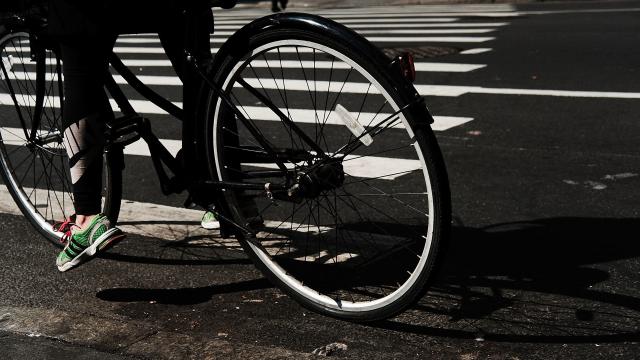Immortality may be a gift reserved only for the mole rats of the world. But staying highly active into your golden years might just offer the next best thing: a robust immune system that looks decades younger than expected. That’s the finding of a new study published Thursday in the journal Ageing Cell.
A lifelong cycling habit, a new study in the UK finds, might give an 80-year-old the immune system of a 20-something. Photo: Spencer Platt (Getty Images)
Researchers in the UK examined the blood of 125 people over the age of 55 who have regularly cycled for most of their lives, looking for markers of T cell production. T cells are one of the major foot soldiers of the immune system, tasked with a variety of roles, such as recognising and killing foreign invaders.
They compared these fit senior citizens to 75 similarly aged, otherwise healthy people who didn’t exercise, as well as 55 young adults who weren’t all that active. The older cyclists, they found, overall had higher levels of young, freshly made T-cells than their sedentary counterparts. But even more surprising to the researchers, these levels were about the same as those found in the younger group.
The findings suggests that the gradual decline of our immune system as we age, also known as immunesenescence, might be not so inevitable. “We conclude that many features of immunesenescence may be driven by reduced physical activity with age,” the authors wrote.
Of course, the study isn’t the first to show clear differences between active people and everyone else. Other research has long found that a sedentary lifestyle can increase the risk of a variety of chronic conditions like cardiovascular disease, obesity and certain cancers, especially the older you get.
But this new research does further highlight the role of a robust immune system in keeping older people healthier.
“The immune system declines by about 2-3 per cent a year from our 20s, which is why older people are more susceptible to infections, conditions like rheumatoid arthritis and, potentially, cancer,” co-author Janet Lord, professor and director of the Institute of Inflammation and Ageing, at the University of Birmingham in the UK, explained to the BBC. “Because the cyclists have the immune system of a 20-year-old rather than a 70 or 80-year-old, it means they have added protection against all these issues.”
Not everything was the same between the youngsters and the aspiring Jack Lalannes though. The cyclists did have higher levels of memory T cells. And the levels of a certain population of immune cells, known as CD28−ve, CD57+ve T cells, were the same between the active and non-active elderly. The presence of both of these kinds of T cells are thought to increase the more foreign invaders we’re exposed to over a lifetime, the researchers say.
That suggests that even the most active people will show some signs of wear and tear as they age.
Still, the researchers theorise that not only will staying active into your later years protect you from diseases like cancer, it could also make vaccines used on you that much more effective. They next plan to study the same group of cyclists to test their vaccine theory.
[Ageing Cell via BBC]
